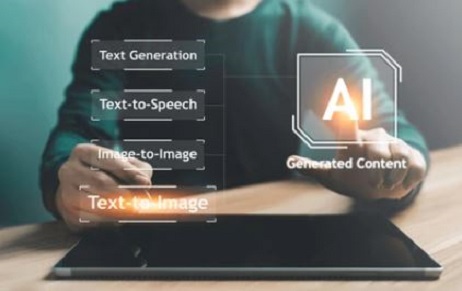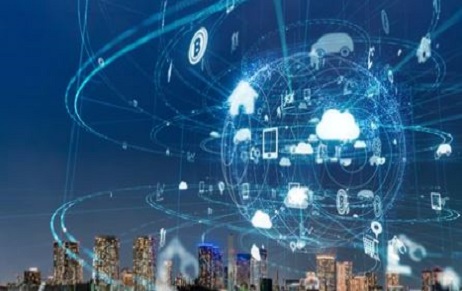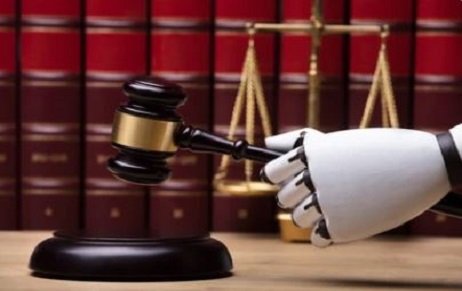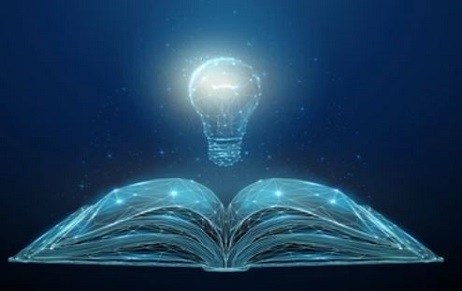A new era started with the innovation of Artificial Intelligence (AI). AI systems can produce…
Conundrum of Copyright over the Content Created By AI
INTRODUCTION
AI nowadays has been making the headlines for various reasons as Sophia, a human-crafted AI has recently got citizenship of Saudi Arabia becoming the first AI to receive legal personhood of any country which aptly shows the grip of AI over our life. The rising use of AI tools such as ChatGPT for creating content compels us to question the implication that it has over Intellectual Property Rights regarding the work provided by it. The concept of copyright basically seeks to preserve the originality of work to promote the spirit of innovation in the arena of literary, dramatic, music and artistic work. AI works on the intelligent algorithm which is the combination of a large amount of data fed by humans designed to imitate the human brain and functions done by it by the process of self-learning. Due to limited human intervention in AI’s functioning, it makes the work created by it undefined while dealing with copyright matters such as originality and authorship.
ISSUES
ORIGINALITY: The main idea around which the basis of copyright revolves is the theme of originality which is not defined anywhere. It is checked by various parameters in which skill and labour by the author constitute the main element. AI has reached to the point where it is now capable of creating work without any human intervention however the argument boils down to the fact that it works on the method of compilation of work and considering it as labour is a grey area issue. It is needs to be considered since copyright essentially, protects “the fruits of intellectual labour” that “are founded in the creative powers of the mind.”[1] It needs to be seen that this element has been considered important in various judgements such as in case of Eastern Book Company & Ors vs. D.B. Modak & Anr[2]. The work created by AI is through the method of creative compilation and self-learning which is evident in the instances such as “The Next Rembrandt” wherein the AI produced a painting by analysing the work of the famous painter Rembrandt Harmenszoon. It brings in the question of whether such compilation, which involves labour can be called “original work” since human brain also functions on the knowledge provided by outer sources such as books, music and movies.[3]
OWNERSHIP: While dealing with work created by AI another dilemma that is often encountered is whether the ownership should go to the designer of the programme or its user. The arguments in favour of either side are very balanced since any work done by AI is totally based on the pattern of data fed by its creator however giving ownership to the creator for all creations of AI is unfair. Since it is the user who has used AI as the tool to create the work. However, the contribution of user can be very minimal since in some cases AI independently works on programming and self-identification of the equation, therefore, the dilemma remains unsolved.
AUTHORSHIP: The major complication which lies in assigning AI technology the status of authorship is legal restraint in India which conforms to the narrow arena of copyright laws. Copyright Act,1957 majorly deals with copyright issues and section 17 of this act talks about the authorship of copyright. Author here is regarded as any ‘person who causes the work to be created’ and the word ‘person’ here reflects any human or a legal person or any entity with the personality but AI has yet not been facilitated with any legal personality in India.[4] The process does not get any easy by just conferring AI with legal recognition since this has its complications. Conferring such recognition would mean holding it liable for the all implications of work created by it and if there is any scandalous work created by it such as creating a defamatory work, then the AI will be held responsible but the question rotates back to who will be held responsible for damages in such a scenario and again the current legal framework puts the constrain on holding AI. As per Section 51 of the Copyright Act the infringement with regards to copyright can only be done by a person, not a juristic personality[5], moreover providing AI with the recognition as a legal personality means opening the possibility of it coming into a contract adding to more complications.
However not providing recognition and protection to the work done by AI can have some unwanted implications such as it can impede commercial innovation and it can even demotivate companies to invest in AI systems that have the potential to create creative work. The declaration of AI work as the public domain will have the same implications. However otherwise would mean keeping human creativity and machine creativity on the same pedestal which is unrealistic and unfair to the human creators.
Position of Indian law
Around the world, there are different takes on the copyright issues over the work created by AI. US copyright laws have the stance that the author needs to be a human for the work to be protected. This reflects that US jurisprudence has given significant importance to human creativity but UK system has tried to make the copyright laws arena wider than the US system as they have accepted the creative work of AI for copyrighting but the dilemma of ownership over such work remains unsolved. India has stuck to the conventional side such as the US and has given a narrower interpretation to the term ‘person’. Such as in the case of Rupendra Kashyap v. Jiwan Publishing House Pvt. Ltd.[6] where it was reinforced that the author should be a natural person for the work to be accepted for copyright and in the pertaining case CBSE being an artificial person could not have copyright therefore declaring that an AI cannot claim copyrights.
[Image Source: Shutterstock]

CONCLUSION
To ensure that the advancement of AI and its implications has the most favourable impact on the country. It is necessary that it faces some definite legal constrain which prevents AI from having any detrimental effect on human creativity. Creating legislation over the pertaining matter is like walking on eggshells as tilting to either side would have an equal number of unwanted implications therefore it is important for the present legal system to be structured in a way that explores a mid-path respecting both AI-created and human-created work and taking help of foreign legal framework in its infancy to evolve into such a system is a prudent step.
Author: Lavanaya, A Student at Army Institute of Law in Mohali, in case of any queries please contact/write back to us via email to [email protected] or at IIPRD.
REFERENCES
- Feist Publications v Rural Telephone Service Company, Inc. 499 U.S. 340 (1991)
- Eastern Book Company & Ors vs. D.B.Modak & Anr, 2008 1 SCC 1
- Andres Guadamuz, WIPO magazine, Artificial intelligence and copyright (October 2017) https://www.wipo.int/wipo_magazine/en/2017/05/article_0003.html accessed 21st November 2023.
- Neha Raj and Mehda Banta, (28th July 2023 ) Legal Implication of AI-Created Works in India, Mondaq https://www.mondaq.com/india/copyright/1348418/legal-implications-of-ai-created-works-in-india accessed 21st November 2023.
- Tech Plus Media Private Limited v. Jyoti Janda, 2014 (60) PTC 121 (Del).
- Rupendra Kashyap v. Jiwan Publishing House Pvt. Ltd., 1996 (38) DRJ 81
- Gil Appel, Generative AI Has an Intellectual Property Problem, (07 April, 2023) https://hbr.org/2023/04/generative-ai-has-an-intellectual-property-problem 22nd November 2023
- Srishti Ojha Who owns AI- generated works? Here’s what the laws say on copyright issue, India Today ( 22 September, 2023) https://www.indiatoday.in/law/story/chatgpt-ai-generated-content-copyright-ownership-complexities-india-2439165-2023-09-22 accessed 22nd November 2023
[1] Feist Publications v Rural Telephone Service Company, Inc. 499 U.S. 340 (1991)
[2] Eastern Book Company & Ors vs. D.B.Modak & Anr, 2008 1 SCC 1
[3] Andres Guadamuz, WIPO magazine, Artificial intelligence and copyright (October 2017) https://www.wipo.int/wipo_magazine/en/2017/05/article_0003.html accessed 21st November 2023.
[4] Neha Raj and Mehda Banta, (28th July 2023 ) Legal Implication of AI-Created Works in India, Mondaq https://www.mondaq.com/india/copyright/1348418/legal-implications-of-ai-created-works-in-india accessed 21st November 2023.
[5] Tech Plus Media Private Limited v. Jyoti Janda, 2014 (60) PTC 121 (Del).
[6] Rupendra Kashyap v. Jiwan Publishing House Pvt. Ltd., 1996 (38) DRJ 81



